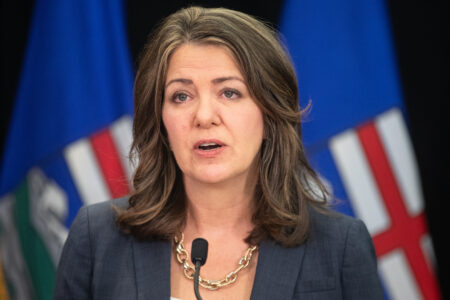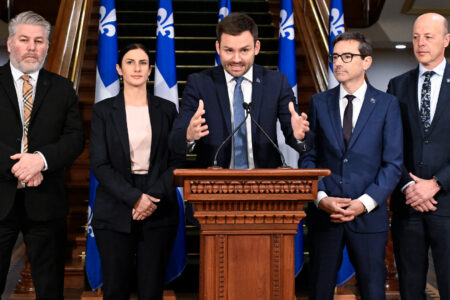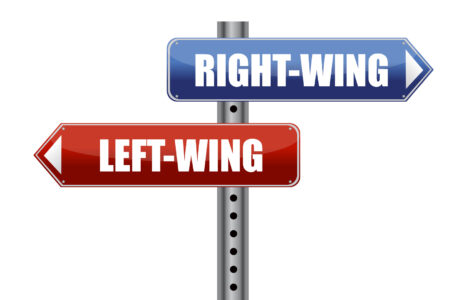
Stephen Harper has said on many occasions that he views the path to a stable, durable, Conservative majority government — and the replacement of the Liberals as Canada’s natural governing party — as a long march. By that measure, in the recent election campaign, he achieved several important milestones: he broke through Ontario’s resistance; he won new levels of support among Canada’s ethnic communities and new Canadians; and he began to make urban inroads. It looks as if he has bridged the gender gap with important groups of women. And, significantly, he held his Quebec beachhead in the face of very strong political crosswinds.
Outside of Quebec, the “hidden agenda” is dead. And he’s still the man with the keys to 24 Sussex. Not too bad for one campaign, the Prime Minister might reflect. But these very significant political gains are counterbalanced by equally significant governing challenges. When he was elected in 2006 in the midst of a booming economy, spending and resource allocation choices were relatively easy. This time, his voters face diminished economic prospects and increased worries about their retirement savings, pensions and jobs.
This time, their expectations will be much harder to meet, especially with a strained budget pantry and demands far greater than any government’s ability to deliver. The Prime Minister is now an incumbent returned to office; no longer is he able to point backwards or across the aisle to find reasons for failing to perform.
The Prime Minister is now an incumbent returned to office; no longer is he able to point backwards or across the aisle to find reasons for failing to perform.
A strengthened NDP in Ottawa and increasingly skeptical provincial governments in Ontario and Quebec limit his political freedom to manœuvre.
Canadians chose Harper, some with little enthusiasm, but as the best of an unhappy set of choices. We may infer from the anger our post-election study participants exhibited about partisanship, about political games and about attack messages that their expectations extend to Harper as well. It would seem likely, given that very “Canadian” interest in courtesy, constraint and consensus on the part of their politicians, that Harper will be judged by this standard going forward as well.
If he adopts a statesmanlike pose, a careful steward of the nation in uncertain times, gently batting aside excessive partisanship from across the aisle, he could benefit significantly politically. The challenge is more complicated for Jack Layton, Gilles Duceppe and whoever replaces Stéphane Dion. It is hard, after all, to be a tough defender of “ordinary Canadians” mildly, especially in Question Period. If the Conservatives present a bland and reassuring enough face to Canadians, one can expect a confused and frustrated response from the opposition.
Cross-pressures are the story not only of the outcome of Election 2008; they are the story of the road ahead.
And the list of those cross-pressures is long: failing Ontario manufacturers, declining government revenues, an unhappy Quebec, conflicting environmental expectations among his supporters, Canadians who want strong economic measures in a time of global crisis. All must be satisfied with the finesse required to avoid political bloodshed.
Juggling these competing demands will test this PM’s ability to lead in uncertain times.
To explore these questions, Ensight Canada undertook a five-city, national qualitative study the day after the polls closed. For the second time in as many elections, we were first in the field to determine why Canadians voted as they did, what it means and, crucially, what they expect.
Here’s what we heard.
More than anything else, participants said this election was a waste of time and money.
Importantly, there was a widespread consensus that the election came at a price of more than just money. They believed the election prevented meaningful action from being taken to protect Canada’s economy amidst the financial crisis that became apparent mid-campaign. The Harper government now needs to play catch-up.
Canadians were looking for a clear vision or program from the candidates and they were disappointed. Participants clearly identified Stephen Harper as the best choice for uncertain times. They yearned for more empathy in the economy recovery messages. And while they thought he was up to the job, their enthusiasm was muted, even amongst his own voters.
Let none of the opposition party leaders take comfort from that; there was a level of disengagement and frustration with all parties’ lack of ability to present a compelling message. What’s more, there was broad dissatisfaction with the choices on offer. Speaking for many, one woman said, “I held my nose and voted.”
Whenever participants discussed who they saw as Harper’s opponents, Duceppe, Layton and even the media were mentioned. Except in Quebec, one person was almost never mentioned: Stéphane Dion. Canadians’ relationship with Dion was over before the election began. More in sorrow than in anger, Canadians had, in the terms of a modern relationship, “simply moved on.” Even among lifelong Liberals, Dion was seen as “barely votable.”
There was no malice in their views. In fact, Conservative attacks on Dion’s leadership eventually came to be seen as unnecessary and gratuitous. Among the names that elicited some excitement were Michael Ignatieff, Bob Rae, Gerard Kennedy, Frank McKenna and, interestingly, Justin Trudeau.
One finding will cheer Harper and his strategists. There is emerging evidence that he is making significant inroads with an important segment of female voters. We found women were in tune with Harper on issues like fiscal management and the role of government in the economy.
More predictably, Canadians very much continue to vote with regional interests in mind. Conflict between these interests will continue to present challenges for the new government. Alberta and Quebec continue to represent the polar opposites of regional opinion.
Quebecers voted for those seen to defend their interests best, whether in culture, crime or values, or who they believed understood them. When asked why they didn’t support Harper, the universal response was cuts to arts. We peeled away at that and found something much more profound and indeed challenging for Harper. It is undeniable that the Conservatives’ approach to young offenders and arts funding were unpopular with Quebec participants.
That said, Duceppe was very skilful, clever even, in using these issues to light a fuse. And while it could have been safe injection sites or immigration or any number of issues, the Conservatives gave Duceppe an opening to reawaken that deep sense amongst Quebecers that Harper still does not understand “us.”
What a difference two years makes. In our study conducted after the last election, Harper got points from Quebec participants for not only his efforts to learn French, but his effort to understand “their” issues. However, despite attention lavished on Quebec by the Harper Conservatives, the culture and crime policies appear to have erased much of this hard-earned goodwill. And as other prime ministers have discovered, courting Quebec inspires resentment in other parts of the country. Many participants said, “Enough is enough.”
In Halifax, “the Maritimes want in” was the frustration voiced. Atlantic Canadians see the West awash with oil money. They watch as the federal government lavishes money on struggling sectors in central Canada. And they see themselves left behind. There was a hint of sadness among the Maritimers that their neighbours, friends and family have had to pack up and leave for work elsewhere. It is time, they say, that the offshore revenue deals were re-done. Calgarians are still haunted by the spectre of the National Energy Program — a powerful memory triggered by Dion’s Green Shift.
Interestingly, while men in Calgary demonstrated a high degree of concern about the environment, the carbon tax was obviously a nonstarter in the home of the oil sands. But they are among the “greenest” voters in the country. British Columbians are keenly aware of their diversity. They see it as a possible source of tension with the traditional French-English duality in Quebec and the federal government.
Ontarians still see themselves as Canadians first. They have, however, bought the argument that the province is no longer being treated fairly by the federal government. When we turned to issues and leadership, we found that, paradoxically, Canadians want to see consensus and action — at the same time.
When it comes to the economy, there was a real mood of “country first.” The participants want all the parties to “grow up.” They want an end to partisan bickering. They expect the parties to deliver what the country needs to get through the current economic turmoil.
Canadians expect the Prime Minister to do something dramatic on the economic and financial crisis. They will give him wide latitude to ram a tough economic package through the House of Commons. Men especially said, “Just get it done.” There is no question that voters see Stephen Harper as a prime minister with a mandate to lead. However, this is Canada. First he must be cooperative with the opposition!
Harper’s overall tone needs to be different. Participants want him to adopt good opposition ideas. They want him to listen and be respectful of those who disagree. A little bit of honest consensus would go a long way.
For the first time in more than a decade, we are beginning to see the view that the federal government could run deficits under certain circumstances.
For the first time in more than a decade, we are beginning to see the view that the federal government could run deficits under certain circumstances. Global economic headwinds have softened the public for the possibility that the era of surpluses is over — at least for now.
There is no question that these participants remember the previous deficit era and the lessons learned and have no tolerance for ad hoc or partisan deficit games. Were the government to go into deficit for strategic reasons, the participants expect their government to have a plan to return to a balanced budget, and do so quickly. Deficit spending is not normal and cannot be permanent. Deficits are, however, in the right circumstance and done in the right way, acceptable.
This, of course, creates a serious tension between accommodating these concerns, dealing with an economic downturn and satisfying Prime Minister Harper’s core voters, for whom a deficit is anathema.
There is a hesitant willingness to allow the government to use fiscal and economic levers to directly intervene in the economy. Participants recognized that the government may need to make strategic investments. The Conservatives must, however, put “country first.” This means that a choice between a Canadian interest and a foreign one must protect the Canadian interest.
Of course, this is at odds with Harper’s base, which opposes direct intervention in the economy.
Over and over we heard from participants the fundamental belief that Canada’s banking system is strong because it is different and insulated from those in other countries.
People believe it is precisely because our financial institutions have been held back that they have remained isolated from the financial crisis sweeping the globe. Those who are advocating that our banks should now expand internationally through mergers and acquisitions or should merge and lessen competition will find very little public support.
During the election, Harper hammered repeatedly on the strength of Canada’s financial institutions and regulatory regime. It worked. In succeeding, however, he’s painted himself into a corner. Canadians believe that our banks are different from those abroad and not affected by the global credit market crisis.
This poses a policy conundrum. If support for the financial service sector becomes necessary, it will meet with strong resistance from the public. For measures that might be considered to strengthen our banks — mergers, cross pillar expansion, foreign investment — there isn’t just skepticism, there is hostility.
The economic crisis also indirectly impacted views on Canada’s mission in Afghanistan.
The economic crisis also indirectly impacted views on Canada’s mission in Afghanistan. Even among supporters of the mission, there was a widespread sense that the time was coming when we should wrap things up. They felt we have been there long enough, that we have conducted an honourable mission and that now it is time to come home.
The release of the Afghan mission’s costs has given Canadians an acceptable new reason to support withdrawal. It’s too expensive. As the economy worsens, the costs will continue to stoke opposition. Harper is justifiably admired for his strategic judgment. As the economy tumbled, he successfully exploited his advantage as both prime minister and a respected economist.
The challenge of his first term — juggling an unstable minority with a greenhorn government — was daunting. His challenge this time is infinitely harder. The expectations of the second Harper government will be immeasurably harder to fulfill than those of the first. And he will have to contend with cross-pressures that did not exist prior to the campaign.
The next year will reveal if Harper is the strong leader in difficult times that Canadians somewhat grudgingly chose. But then, throughout his long march to 24 Sussex, nothing has ever come easily.
This campaign and the judgment of it are a lesson in the age-old political art of expectation management. Harper showed considerable discipline in not predicting or calling for a majority, unlike each of the opposition leaders, who set their public goals unrealistically high. Like any leader, Harper would have been thrilled to have crossed into majority territory. However, having said he was seeking only “a mandate,” he can now safely say he has received one.
If he governs with the outward appearance of being a consensus seeker, and retains the discipline of a leader of a minority, he may have achieved the best of both worlds: avoiding the sloppy errors of second-term majority governments yet having a reliable governing window of two to three years.







